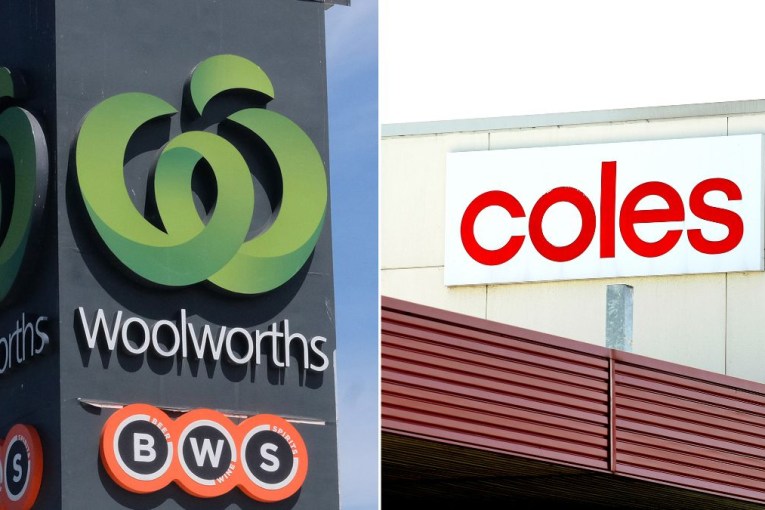‘Major policy failure’: Parliamentary committee to discuss rising transport emissions

Pressure is building on the Morrison government to introduce national fuel efficiency standards amid concerns Australia is becoming a dumping ground for the world’s dirtiest cars.
Fuel efficiency standards regulate the amount of greenhouse gases that cars are allowed to emit per kilometre travelled and Australia is the only OECD country yet to implement them.
Australia Institute climate and energy program director Richie Merzian said this meant Australian motorists were not only polluting the environment more than their peers in the US and Europe, but were also paying more money to travel the same distance.
“Most countries – 80 per cent of the world – have vehicle emissions standards that cover the standard of the pollution that can come out of the tailpipe of cars. But not Australia,” Mr Merzian told The New Daily.
“With the federal government AWOL, it’s leaving Australians with some of the dirtiest cars in the world.”
Data from the National Transport Commission shows the average new passenger vehicle in Australia produced 169.8 grams of emissions per kilometre in 2018 – 41 per cent more than in Europe and 16 per cent more than in the US (in 2017).
Meanwhile, separate figures from the Department of Industry, Science, Energy and Resources show that while transport emissions fell 10.2 per cent over the year to the September quarter, due to COVID lockdowns, they have been rising steadily over the past two decades and were 33 per cent higher in 2018-2019 than in 2001-2002.

Jaguar says it will be all electric by 2025. Photo: Getty
To make matters worse, Mr Merzian said, the federal government has no policies aimed at encouraging greater uptake of electric vehicles and has ruled out introducing taxpayer subsidies, despite official advice given to the Turnbull government in 2018 describing them as the best way to drive faster uptake.
“On top of all this, there are all these lost opportunities [from not] using Australia’s resources – particularly lithium and the other rare earth materials that go into batteries – to build up our manufacturing industry,” said Mr Merzian, when discussing the slow uptake of EVs.
“From any angle that you look at it, it is just a major policy failure that the federal government hasn’t moved on transport.”
It comes after the Electric Vehicle Council released data earlier this month showing that electric cars accounted for just 0.75 per cent of total cars sold in Australia in 2020, compared to 75 per cent of total cars sold in Norway, and 8.1 per cent of total cars sold in California.
The slow uptake of EVs will be addressed as part of a broader discussion on transport emissions at the next meeting of the Parliamentary Friends of Climate Action, to be held on Thursday.
Co-chaired by independent crossbenchers Rebekha Sharkie and Helen Haines, the parliamentary group was established in 2018 by Ms Sharkie and Dr Kerryn Phelps with the aim of building broad-based support for stronger action on climate change.
Tim Wilson, Dave Sharma, Jason Falinski, Katie Allen, Angie Bell and Trent Zimmerman are among the Liberal MPs to have signed up to the group, which also counts among its members Labor’s Ged Kearney and Josh Burns, the Greens’ Adam Bandt, and independent Andrew Wilkie.
This week’s forum will discuss the opportunities and challenges involved in driving down Australia’s transport emissions and will hear from EV entrepreneur and JET Charge CEO Tim Washington, the Norwegian ambassador to Australia, the corporate communications manager at Mercedes-Benz Australia, and a former deputy chief of the Royal Australian Air Force who is an expert in fuel security.
In written responses to The New Daily, Mr Washington said he would use his presence at the parliamentary forum to highlight “how Australian consumers are missing out on cheaper, safer, and more environmentally friendly vehicles”.
“I’ll also be discussing the opportunities for Australian industries [that] the EV transition brings,” he said, noting that Australia “should be right up there with the rest of the world on battery manufacturing and recycling”.
Asked what policies he would like from state and federal governments to encourage greater uptake of EVs, Mr Washington said we should introduce CO2 emissions standards for vehicles and “financial incentives for fleets and consumers to purchase EVs”.
“The cost of the vehicle is at the centre of many other issues – like model availability and even charging infrastructure,” he said.
“Many other developed nations, especially Norway, heavily incentivise the uptake of EVs through financial and indirect support, not because they are necessarily from any side of politics, but because they recognise the transition as a crucial milestone for their country’s future.”









